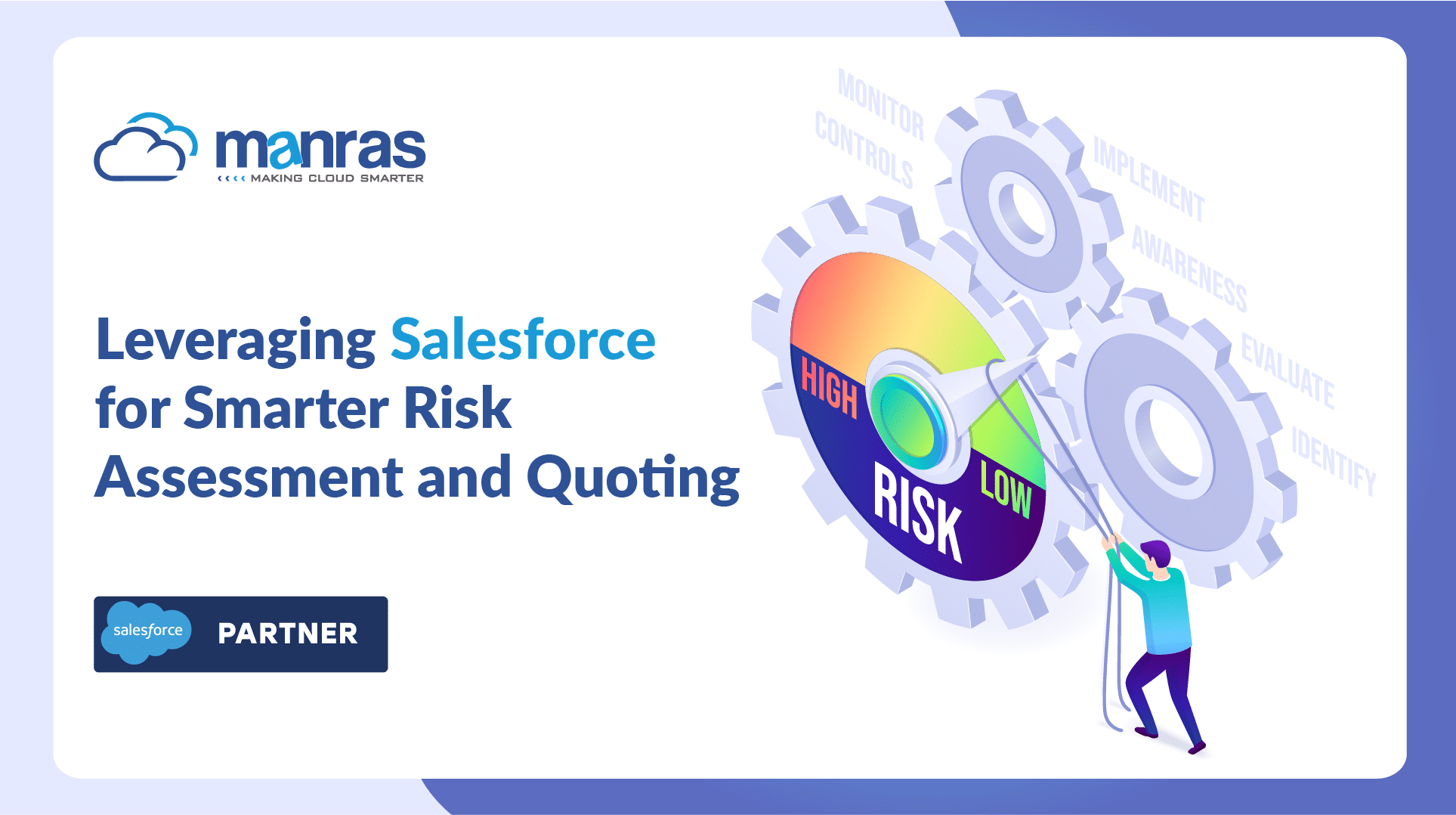
Leveraging Salesforce for Smarter Risk Assessment and Quoting
Salesforce CRM, a cloud-based platform, is a game-changer in the insurance broking industry. It’s designed to streamline customer relationship management, sales pipelines, leads, and interactions, eliminating scattered spreadsheets and disjointed communication. With its seamless integration and unified view of customers, Salesforce empowers insurance brokers to close deals faster and more efficiently, enhancing their productivity and effectiveness.
In this article, we’ll explore Salesforce’s role in insurance broking. We will discuss how brokers can leverage Salesforce risk assessment insurance and AI-powered insurance quoting to enhance their ability to provide data-driven insurance quotes.
Why Is Risk Assessment Important in Insurance Broking?
Here are the primary reasons why thorough risk assessment plays a crucial role in insurance broking:
Identifying Specific Risks
Assessing risks helps insurers understand the unique risks faced by businesses or individuals. This allows them to offer tailored coverage, like protection against natural disasters in risky areas.
Setting Accurate Premiums
By evaluating risk levels, insurers can accurately determine premiums that reflect the risks involved. Fair premiums ensure comprehensive coverage that meets policyholders’ needs while financially stabilising the insurer.
Effective Risk Management
Assessments help brokers pinpoint vulnerabilities in client operations or situations. This proactive approach allows brokers to suggest personalized risk management strategies to minimize potential losses and secure long-term financial health.
Enhancing Client Satisfaction
Thorough risk assessments and customized coverage options improve client satisfaction. Clients appreciate policies that address their specific risks, building trust and loyalty with their broker.
Ensuring Regulatory Compliance
Risk assessment is a critical regulatory requirement in insurance broking. It ensures brokers meet industry standards, offering appropriate coverage while operating ethically and legally.
How Does Salesforce Provide Real-Time Risk Insights To Insurance Brokers?
Now that you understand why risk assessment is crucial in insurance broking let’s see how Salesforce for insurance underwriting can help brokers manage risks more effectively:
Risk assessment and analytics
Salesforce CRM equips insurance brokers with advanced analytics and data solutions for comprehensive risk assessment. Brokers can analyze critical data points such as customer demographics, claims history, policy details, and market trends. This analysis enables brokers to evaluate risk profiles accurately, identify potential risks early in the underwriting process, and make informed policy pricing and coverage decisions.
Automated workflows
Salesforce risk assessment insurance enables brokers to streamline operations through automated workflows tailored to policy management, claims processing, and customer interactions. Automated workflows automate routine tasks such as policy renewals, claims notifications, and customer communications. By setting up triggers and actions based on predefined criteria, brokers can ensure timely responses, reduce administrative overhead, and enhance overall operational efficiency.
Predictive modeling
Salesforce’s predictive analytics capabilities empower insurance brokers to leverage data-driven insights for predictive modelling. Brokers can more accurately forecast future trends and potential risks by analyzing historical data, economic indicators, and customer behaviours. This predictive modelling helps brokers optimize resource allocation, adjust pricing strategies, and proactively mitigate risks, enhancing profitability and ensuring sustainable growth in a competitive insurance market.
How Insurance Brokers Can Use Salesforce for AI-Powered Insurance Quoting?
Apart from Salesforce’s risk assessment tools, here is how AI-powered insurance quoting can assist insurance brokers in generating data-driven insurance quotes:
Automated Plan Selection and Configuration
Using Salesforce CPQ (Configure, Price, Quote), insurance brokers automate the selection of applicable insurance plans based on preconfigured rules. This streamlines the process of selecting products with preassigned network and benefits configurations.
Pricing and Approval Automation
After any necessary adjustments by sales agents, Salesforce notifies the underwriting team to initiate pricing based on system-defined rules. Upon pricing completion, plans undergo automatic approval processes, ensuring efficient and compliant pricing.
Quote Generation and Finalization
Approved plans are bundled into quotes within Salesforce opportunities. Sales agents collaborate with brokers to review, make changes, and finalize quotes, ensuring accuracy and alignment with customer needs.
Automated Enrollment and Contract Management
Salesforce automates enrollment, including contract generation and customer e-signature capture using relevant Salesforce AppExchange apps. Enrollment partners collaborate seamlessly through Salesforce Communities, ensuring a smooth customer onboarding experience.
Renewal Opportunities Automation
Salesforce CPQ automatically automates the creation of Renewal Opportunities by importing previous contact information. Sales agents are notified promptly, facilitating timely follow-ups and renewals.
Conclusion
In conclusion, Salesforce is crucial in transforming insurance broking by simplifying how brokers handle risk assessment and quoting. By centralizing customer management, streamlining sales processes, and improving data analysis capabilities, Salesforce enables brokers to evaluate risks and accurately create personalized insurance solutions. This enhances client satisfaction, ensures adherence to regulatory standards, and positions brokers for sustained growth in a competitive insurance market.
To implement Salesforce effectively for your insurance brokerage, partner with Manras. We specialize in Salesforce CRM customization, CPQ integration, and workflow automation tailored to insurance operations, ensuring streamlined processes and accelerated growth.



